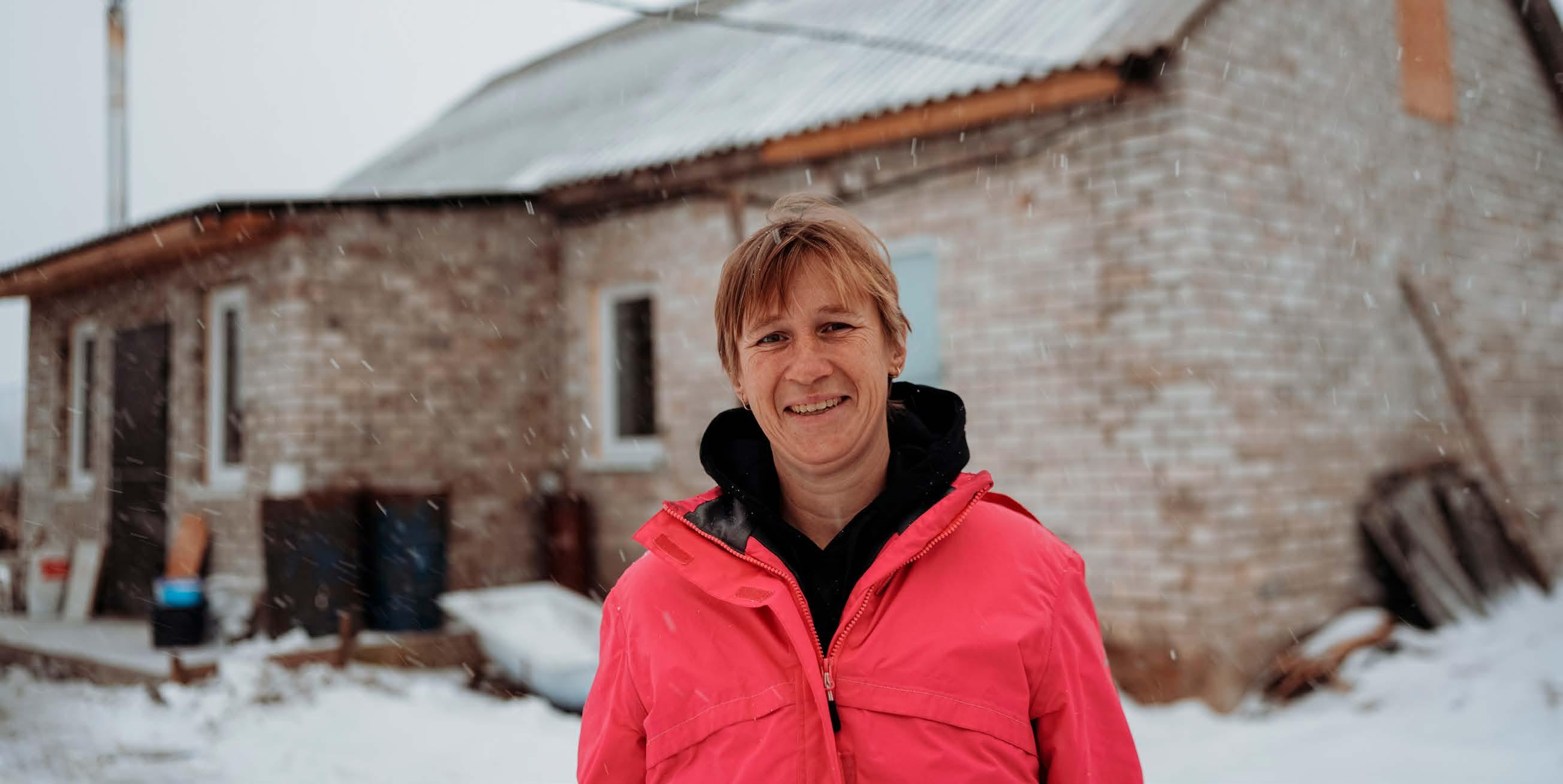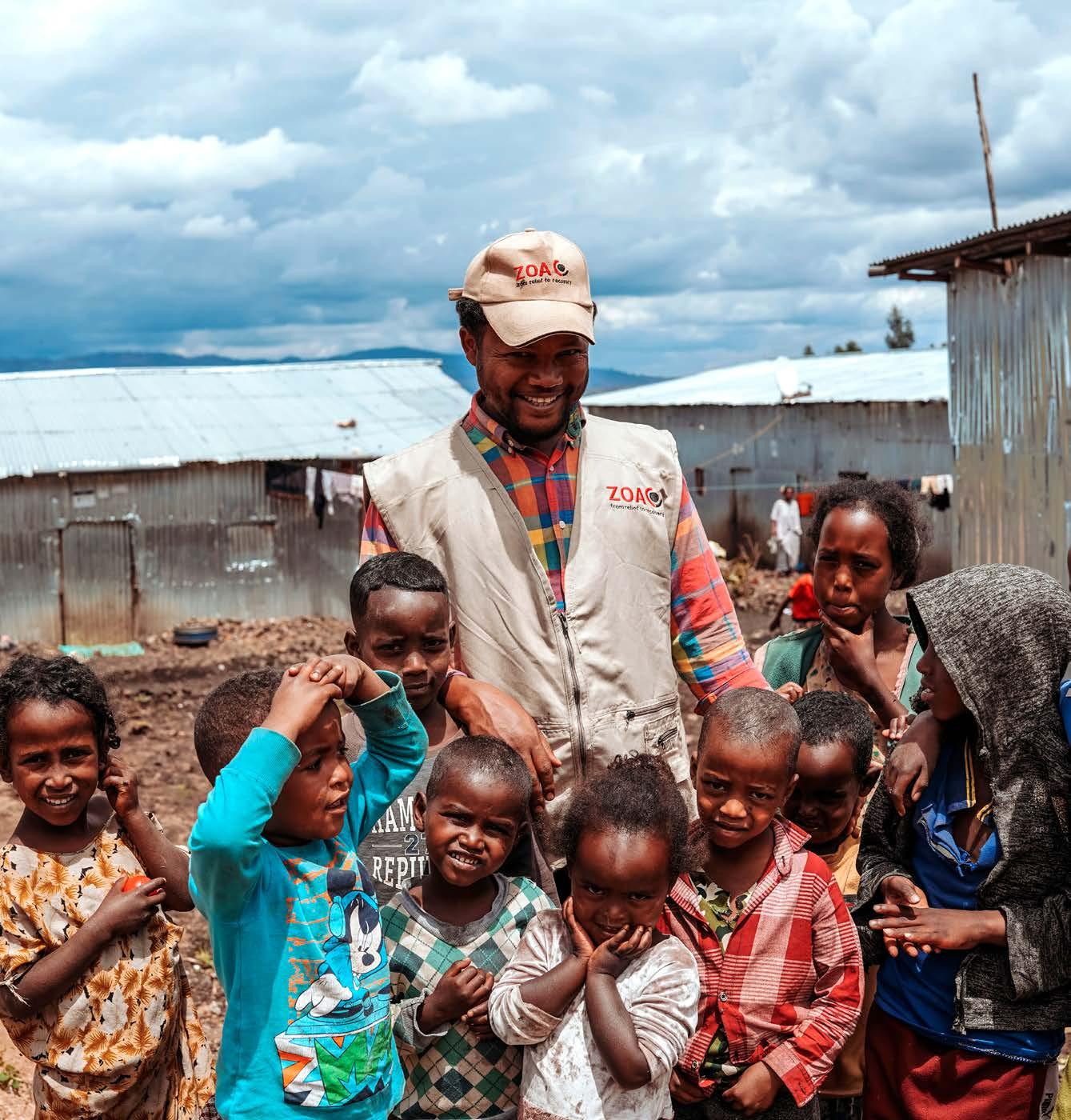
2 minute read
SHELTER
from Annual Report 2022
by ZOA
As the current emergency in Ukraine illustrates, safe shelter is of vital importance for those who have been directly impacted by conflict. ZOA’s shelter interventions provide a safe space where families can start to rebuild their lives. Once an emergency phase has covered the most basic human needs, the “building back better” principle is utilised to facilitate sustainable housing where displaced families can regain their dignity and boost their self-reliance.
UKRAINE Hundreds of homes repaired before winter storms
Advertisement
The conflict in Ukraine forced millions to flee their homes in 2022. This created a flow of IDPs into western Ukraine. Many ended up in Uzhgorod; hence, ZOA decided to launch an IDP-focused programme in that region. In May of 2022, ZOA performed a needs assessment in Chernihiv Oblast – north of Kyiv –where numerous vulnerable villagers (such as the elderly, people with disabilities, and the chronically ill) stayed behind. Beneficiaries identified the repair of their war-damaged homes as their greatest need, so ZOA initiated interventions in the hardest-hit villages. Together with local authorities, ZOA identified the most vulnerable people with damaged houses. A technical assessment was then conducted to determine each house’s level of damage. ZOA designed a cash for shelter project utilising RedRose, a cash distribution platform, to ensure beneficiaries received funds in a dignified way while avoiding the possibility of fraud.
We are pleased to share that by the end of 2022, ZOA repaired 483 houses for 1,329 beneficiaries to sustain them through harsh winter conditions. The next project phase is to repair damaged dwellings in Kherson Oblast, which, sadly, has experienced large-scale destruction of private and public properties.
Shelter services for 36,000 beneficiaries
The humanitarian situation in Rakhine State is deteriorating, and internal fighting between the Myanmar government and the Arakan independence movement has intensified. Numerous people were newly displaced in 2022, bringing the total number of IDPs related to this conflict to more than 91,000. This is in addition to the 230,000 stateless Rohingya refugees displaced since 2012. ZOA has worked tirelessly in Rakhine State for more than a decade. We finalised two projects to support displacement sites in 2022. Two additional projects continued into 2023 to provide access to basic non-food items and shelter services at 43 IDP sites (consisting of 36,000 beneficiaries). Camp Coordination and Camp
Ethiopia
Management (CCCM) is a crucial shelter service. Through CCCM, ZOA ensures that all vulnerable people at the sites are supported with household registration, site planning/layout, site maintenance and improvements, governance structure assistance, community group training, and maintenance of complaints and feedback mechanisms. Additionally, as a winterisation measure, ZOA distributed two blankets and bedding to every household. Children were provided with winter clothes, such as mittens, wool caps, socks, and jackets. Also, communal kitchens were upgraded and fire prevention training was provided.
Essential shelter for 81,465 people in Northern Ethiopia
Due to conflict, Tigray’s estimated 7 million residents were cut off from public services – and the rest of Ethiopia – for two years. 6.5 million need humanitarian assistance and 2.2 million are still displaced. Adequate shelter and non-food items continue to be in urgent demand as 4.2 million people, including 2.2 million IDPs, desperately need immediate assistance with emergency shelter and non-food items (NFI). As the situation slowly improves in Northern Ethiopia, most conflict-affected areas across the region are becoming accessible. ZOA is assisting these communities. We provided 81,465 people with essential shelter and non-food items in 2022. Shelter repair kits (which included corrugated iron sheets, nails, hinges, and gate latches) were distributed to 617 households in locations where houses were damaged by the conflict. We prioritised female-headed households as well as the homes of people with chronic illnesses and people with disabilities. Each household received cash to cover the cost of labour, (additional) materials, and tools for home repair. Beneficiaries reported NFI cash assistance to be especially useful because it provided them with flexibility and freedom to address their unique needs. More than 85% of beneficiaries reported satisfaction with ZOA’s shelter assistance.











